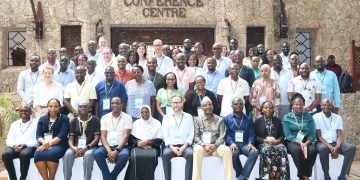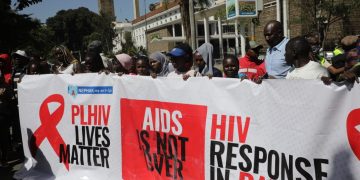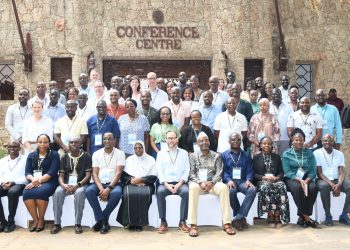By Ivyn Kipruto
Kenya Medical Research Institute (KEMRI) scientists have played a key role in a groundbreaking international study that reveals how Anopheles funestus, one of Africa’s deadliest malaria mosquitoes,is evolving to survive control measures.
The research, led by the Wellcome Sanger Institute and published in Science, identifies new genetic adaptations that make An. funestus increasingly resistant to insecticides. The findings are expected to guide the next generation of malaria control strategies across Africa.
Working with counterparts in 16 African countries, KEMRI scientists collected and sequenced hundreds of An. funestus specimens. They compared modern samples (2014–2018) with historical collections dating back nearly a century, uncovering how the mosquito’s genetic structure is shifting.
“Understanding the genetic make-up of An. funestus is critical to optimising malaria control strategies,” said Dr. Eric Ochomo, who leads the Kenyan arm of the study. “KEMRI is proud to be at the forefront of this effort, generating knowledge that directly supports Kenya’s and Africa’s fight against malaria.”
The study shows that populations in equatorial Africa are genetically connected across vast regions, while others, such as those in Ghana and Benin, remain distinct. This genetic diversity helps explain why interventions succeed in some areas but fail in others.
Researchers also found that insecticide-resistance mutations, first detected in the 1960s, have become stronger over time—evidence of the mosquito’s remarkable adaptability. In a breakthrough discovery, they identified that a genetic target used in “gene drive” technology for An. gambiae also exists in An. funestus, potentially opening the door to powerful new biological control tools.
Malaria remains one of Africa’s deadliest diseases, killing an estimated 569,000 people in 2023, according to the World Health Organization. With its long lifespan and strong preference for human blood, An. funestus is among the most efficient transmitters of the parasite.
All genetic data from the study is being shared publicly through the MalariaGEN Vector Observatory to accelerate global research.
“This is a prime example of how international collaboration anchored in strong African science delivers discoveries with the power to save lives,” said KEMRI Acting Director General Prof. Elijah Songok. “KEMRI remains committed to advancing research and partnerships that provide practical solutions for malaria elimination.”














